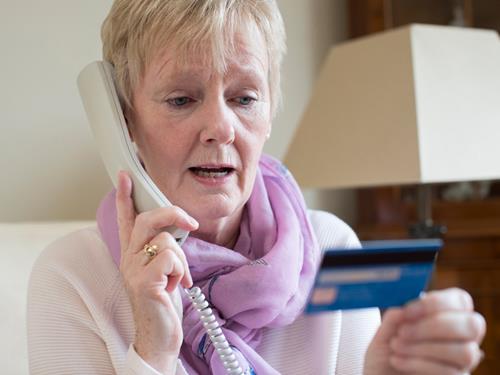How to avoid falling victim to fraud

Unfortunately, there has been an increase in the number of scam and fraud cases since the COVID-19 outbreak.
We’re here to remind you to be alert and lookout for scams, bogus callers, suspicious calls and emails.
Phone calls
You may receive calls from people pretending to be your bank, the Council, or even Wrekin.
We have been making genuine calls to check on our more vulnerable customers to see if they need more support at the moment.
Bogus doorstep callers
Criminals have been targeting older people on their doorsteps, offering to do their shopping. We have also had reports of people cold-calling customers impersonating Wrekin trades, trying to gain access to their property.
Scam emails or text messages
Email and text message scams can trick people into opening malicious attachments, putting them at risk of identity theft. These email and text messages can look authentic and be tempting – especially if they are offering cash and support at this difficult time. One common scam is to receive a false email from someone claiming to be HMRC (more on that below).
Remember
- We will never ask for your personal information, bank or card details over the phone. If you receive a suspicious call or email from us, or are unsure, please hang up and call us on 01952 21700, or email enquiries@wrekin.com to check it’s really us.
- The same is true of your bank or local Council. Your bank details are never required to verify your identity. If you have a password then they will only ask for certain numbers and letters – never the full password.
- Always to ask to see ID of anyone that visits your property claiming to be from Wrekin. If in doubt, don’t let them into your home and call us to let us know.
- With emails, or texts, do not click on links that you recognise or look strange. Use your mouse to hover over links to see if they look genuine.
- HMRC have published guidance on how to recognise genuine contact from HMRC. If you think you have received a fraudulent HMRC-related email or text message, you can check it against examples published on GOV.UK.
- Be vigilant. If something seems too good to be true, it often is, and is probably a scam.
You can report cases of suspected fraud on the Action Fraud website or visit the Citizens Advice website for more advice about scams.
For the latest government advice on fraud and cyber-crime, visit the gov.uk website.
4th May 2020